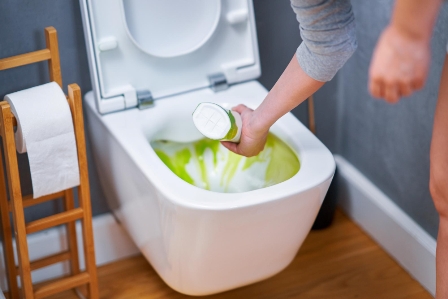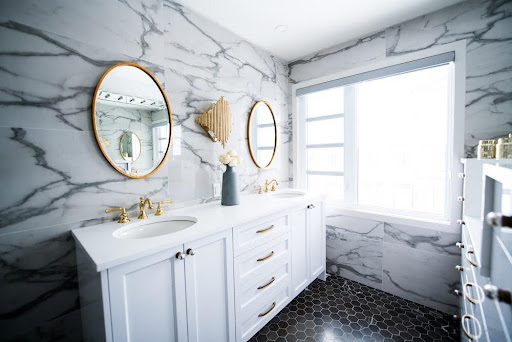A clean home is often seen as a sanctuary, a place of refuge from the chaos of the outside world. But have you ever wondered why a tidy living space feels so comforting? In this comprehensive exploration of “The Psychology of a Clean Home: How Tidiness Affects Your Well-being,” we delve deep into the psychological and emotional aspects of cleanliness. From reducing stress to enhancing productivity, the state of your home can significantly impact your overall well-being.
The Psychology of a Clean Home: How Tidiness Affects Your Well-being
The Impact of a Clutter-Free Environment
A cluttered home can lead to a cluttered mind. When your living space is filled with disarray, it can create a constant undercurrent of stress and anxiety. The human brain is wired to seek order and predictability, and a messy home disrupts this innate need for structure. Cleaning up and organizing your space can provide a sense of control and calm, alleviating stress and promoting mental well-being.
Boosting Productivity and Creativity
A tidy home can be a breeding ground for productivity and creativity. When your environment is organized, you’re more likely to stay focused and complete tasks efficiently. Clutter can be distracting, leading to procrastination and decreased productivity. By maintaining a clean space, you create a conducive atmosphere for tackling projects, sparking creativity, and achieving your goals.
Improved Physical Health
A clean home isn’t just good for your mental health; it can also positively impact your physical well-being. Dust, allergens, and mold thrive in unkempt environments, leading to allergies and respiratory issues. Regular cleaning and tidying reduce exposure to these health hazards, leading to better physical health and overall well-being.
Strengthening Emotional Well-being
Emotions are closely tied to our surroundings. A clean and organized home can promote feelings of happiness and contentment. On the contrary, a cluttered and dirty space can contribute to feelings of frustration and irritability. By maintaining a clean home, you create a positive and uplifting atmosphere that can significantly enhance your emotional well-being.
Fostering Healthy Relationships
The state of your home can impact your relationships. A clean and organized space is inviting and comfortable for guests, fostering positive social interactions. It also shows respect for the people you share your space with, enhancing harmony in your relationships.
Reducing Decision Fatigue
A messy environment can lead to decision fatigue – the feeling of being mentally exhausted from making too many choices. When your home is cluttered, you’re constantly confronted with decisions about where to find things or what to prioritize. A clean and organized space simplifies your daily routines, reducing decision fatigue and conserving mental energy.
Enhancing Self-esteem
The act of cleaning and maintaining a tidy home can boost self-esteem and self-worth. Accomplishing tasks, no matter how small, can provide a sense of achievement. When you take pride in your living space, it reflects positively on your self-image.
Promoting Mindfulness
Cleaning and tidying can be a meditative practice. Engaging in repetitive tasks like sweeping or organizing allows you to be present in the moment, promoting mindfulness. This can reduce stress and anxiety, leading to improved mental health.
Encouraging Healthy Habits
A clean home encourages other healthy habits. When your space is organized, it’s easier to maintain a regular exercise routine and prepare nutritious meals. These habits contribute to overall well-being.
The Role of Color Psychology
Color plays a significant role in the psychology of a clean home. Different colors can evoke various emotions and moods. For instance, soft blues and greens can create a sense of calm and tranquility, while vibrant yellows can boost energy and creativity. Understanding color psychology can help you choose the right color scheme for your home to enhance your well-being.
The Connection Between Sleep and Cleanliness
A tidy bedroom can significantly impact your quality of sleep. A clutter-free and clean sleeping environment promotes relaxation and better sleep patterns. Discover how the cleanliness of your bedroom affects the quality of your rest.
The Joy of Minimalism
Minimalism is a lifestyle choice that emphasizes simplicity and decluttering. Learn how adopting a minimalist approach to your home can lead to a more fulfilling and content life.
Tidying as a Form of Self-care
Tidying isn’t just a chore; it’s a form of self-care. Explore how taking care of your living space can be a therapeutic and nurturing act for your well-being.
Overcoming Hoarding Tendencies
For some, hoarding tendencies can hinder their well-being. Understand the psychology behind hoarding and learn strategies for overcoming this challenging behavior.
Teaching Cleanliness to Children
Instilling cleanliness habits in children is essential for their development. Discover effective ways to teach kids the importance of tidiness and how it can positively impact their well-being as they grow.
Eco-friendly Cleaning for a Healthier Home
Using eco-friendly cleaning products not only benefits the environment but also your health. Learn how to make your home cleaner and greener while safeguarding your well-being.
The Connection Between Mental Health and Cleaning
Mental health struggles can make it challenging to maintain a clean home. Explore strategies for managing mental health while keeping your living space in order.
Cleaning as a Stress-relief Technique
Cleaning can be a therapeutic activity that helps reduce stress and anxiety. Find out how to incorporate cleaning into your self-care routine.
The Influence of Cultural Factors
Cultural factors can shape our perception of cleanliness and its effects on well-being. Delve into how cultural norms and traditions impact our cleaning habits and mental health.
Tidying and Aging Gracefully
As we age, our relationship with cleanliness may change. Learn how tidiness can play a vital role in aging gracefully and maintaining independence.
Creating a Cleaning Routine
Establishing a cleaning routine is key to maintaining a tidy home. Get expert tips on creating a practical and effective cleaning schedule that fits your lifestyle.
The Impact of Technology
Technology has changed the way we clean and maintain our homes. Discover how smart home devices and apps can simplify the cleaning process and enhance your well-being.
Sustainability in Home Cleaning
Sustainability isn’t limited to just cleaning products. Explore sustainable practices for maintaining a clean and eco-friendly home.
Achieving Work-Life-Home Balance
Balancing work, life, and home responsibilities can be challenging. Learn strategies for achieving harmony and well-being in all aspects of your life.
FAQs
A: Cleaning your home regularly, at least once a week, can help maintain optimal well-being.
A: Yes, a cluttered and messy home can contribute to stress, anxiety, and other mental health issues.
A: Quick cleaning tips include setting a timer for 15 minutes, focusing on one area at a time, and enlisting help from family members.
A: Yes, minimalism can lead to mental clarity by reducing physical and mental clutter.
A: Start small, break tasks into manageable steps, and reward yourself for completing them to boost motivation.
A: Yes, the color of your walls can influence your mood. Cool colors like blue and green promote calmness, while warm colors like red and yellow can increase energy.
Conclusion
“The Psychology of a Clean Home: How Tidiness Affects Your Well-being” is a complex but fascinating topic that highlights the profound interplay between our living environment and our mental and emotional health. From reducing stress and anxiety to fostering creativity and productivity, the cleanliness of our homes significantly impacts our overall well-being. By understanding the psychology behind tidiness and implementing effective cleaning strategies, we can create spaces that promote happiness, harmony, and a sense of well-being.









Find Us on Socials